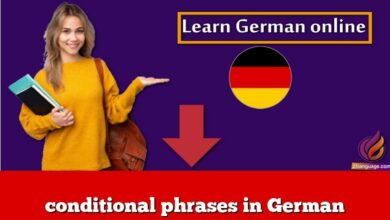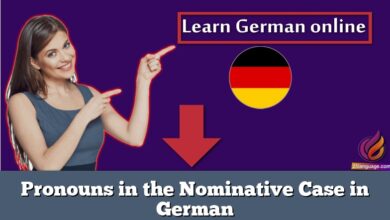Past simple in German

Past simple in German also called simple past or imperfect (Imperfekt or Präteritum in German), is used to express facts and actions that started and ended in the past.
It is typically used to tell stories or report past events in written German. In spoken language, it is common to use the perfect tense instead of the past tense. We can use the English simple past to translate this tense.
Master German tenses online with Lingolia’s simple online grammar explanations and exercises. Learn what the past tense is, when to use it and how to conjugate weak (regular), strong and mixed (irregular) verbs.
Example
Im letzten Jahr machte ich Urlaub in Deutschland.
Mit dem Fahrrad fuhr ich auf dem Elbe-Radweg von Hamburg bis Dresden. Die Strecke war fantastisch und ich hatte tolles Wetter.
How to use the past tense in German
There are two ways to use the past tense in German, we can use it to express:
- a completed action in the past
- Example:
- Im letzten Jahr machte ich Urlaub in Deutschland.
- Mit dem Fahrrad fuhr ich von Hamburg bis Dresden.
- a fact or condition in the past
- Example:
- Die Strecke war fantastisch und ich hatte tolles Wetter.
- In everyday spoken German, it’s more common to use the present perfect to talk about the past.
- Example:
- Im letzten Jahr habe ich Urlaub in Deutschland gemacht. Mit dem Fahrrad bin ich auf dem Elbe-Radweg von Hamburg bis Dresden gefahren.
However, we still use the simple past of the verbs sein/haben to describe facts and conditions in the past.
- Example:
- Die Strecke war fantastisch und ich hatte tolles Wetter.
-
How to conjugate the past tense in German
To conjugate verbs in the simple past, we remove the infinitive ending -en and add the following endings:
person weak verbs strong/mixed verbs 1st person singular (ich) -te ich lernte – ich sah 2nd person singular (du) -test du lerntest -st du sahst 3rd person singular (er/sie/es/man) -te er lernte – er sah 1st person plural (wir) -ten wir lernten -en wir sahen 2nd person plural (ihr) -tet ihr lerntet -t ihr saht 3rd person plural/polite form (sie/Sie) -ten sie lernten -en sie sahen The verbs sein/haben are irregular. They are especially important in the simple past:
person sein haben 1st person singular (ich) ich war ich hatte 2nd person singular (du) du warst du hattest 3rd person singular (er/sie/es/man) er war er hatte 1st person plural (wir) wir waren wir hatten 2nd person plural (ihr) ihr wart ihr hattet 3rd person plural/polite form (sie/Sie) sie waren sie hatten




























